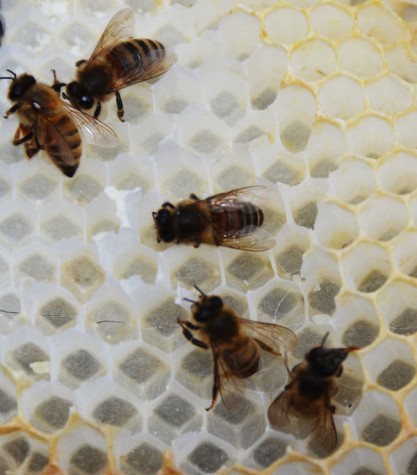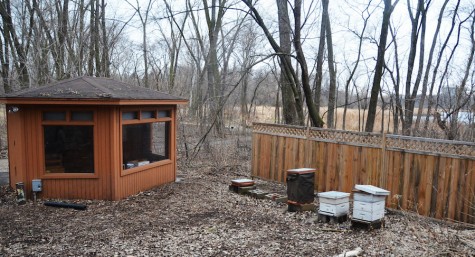City is abuzz with environmentalism
City pledges to become bee friendly
April 23, 2015
Across the nation bee populations are in decline. This may sound like good news for fans of picnics, but in reality it is a dangerous trend.
Bees role as pollinators make them necessary for the life cycle of millions of plants, many of which are important for human life. Articles published by Yale University estimate that one-third of every bite taken by a human required bee pollination.
Experts blame the disappearance of the bees on the widespread use of pesticides in the United States. Pesticides are generally used to keep areas clear of pests, as the name suggests, but most of the chemicals kill insects indiscriminately.
On March 16, the St. Louis Park city council voted to officially adopt a Bee Safe initiative in the city. A local organization, Humming for Bees, authored the initiative, the same one passed in Shorewood and other cities.
Humming for Bees was founded in order to take action to save local bee populations, according to co-founder Judy Chucker.
“Our mission is to pass resolutions in different communities in the west metro and have it spread,” Chucker said. “The other is to educate public about plight of bees and other pollinators.”

The initiative designates eight of St. Louis Park’s parks as “bee safe areas” as well as the Westwood Nature Center. The city will no longer use insecticides in these areas in order to foster the local bee habitats. The resolution specifically refers to the use of neonicotinoids, a common class of insecticide derived from nicotine.
Chucker said of the resolution “we are asking first to ban the use of neonicotinoids on public property, and second to plant bee food, native plants in wide swaths on public spaces.”
In addition to the specific areas, the city further pledged to emphasize biological controls as opposed to more harmful chemical ones on all city parks. This change in focus is mirrored by Hennepin County’s new pest management system, and will take effect in all cities included.
Despite some reservations about the yellow bugs, many students approved of the new policy.
“It means there will be more bees around,” senior T.J. Rempfer said. “But I’d rather be stung if it means saving them.”
Being bee friendly is not just a job for cities, Chucker said. Humming for Bees stresses that anyone with a lawn can be involved.
“We want the public to reconsider the green lawn. They are no better than concrete in what it supplies the natural world,” Chucker said. “We want them to plant bee friendly food, more native plants in their yards. We hope to catch the attention of the public and get them to reconsider what a beautiful lawn looks like.”
Owning a bee friendly yard is not a simple task, however. Humming for Bees warns that it is difficult to avoid harmful chemical products.
“People can make sure they don’t buy plants with neonicotinoids,” Chucker said. “It’s harder than you may think, its very difficult. They come with nice names without reference to the fact that it’s a deadly poison.”






